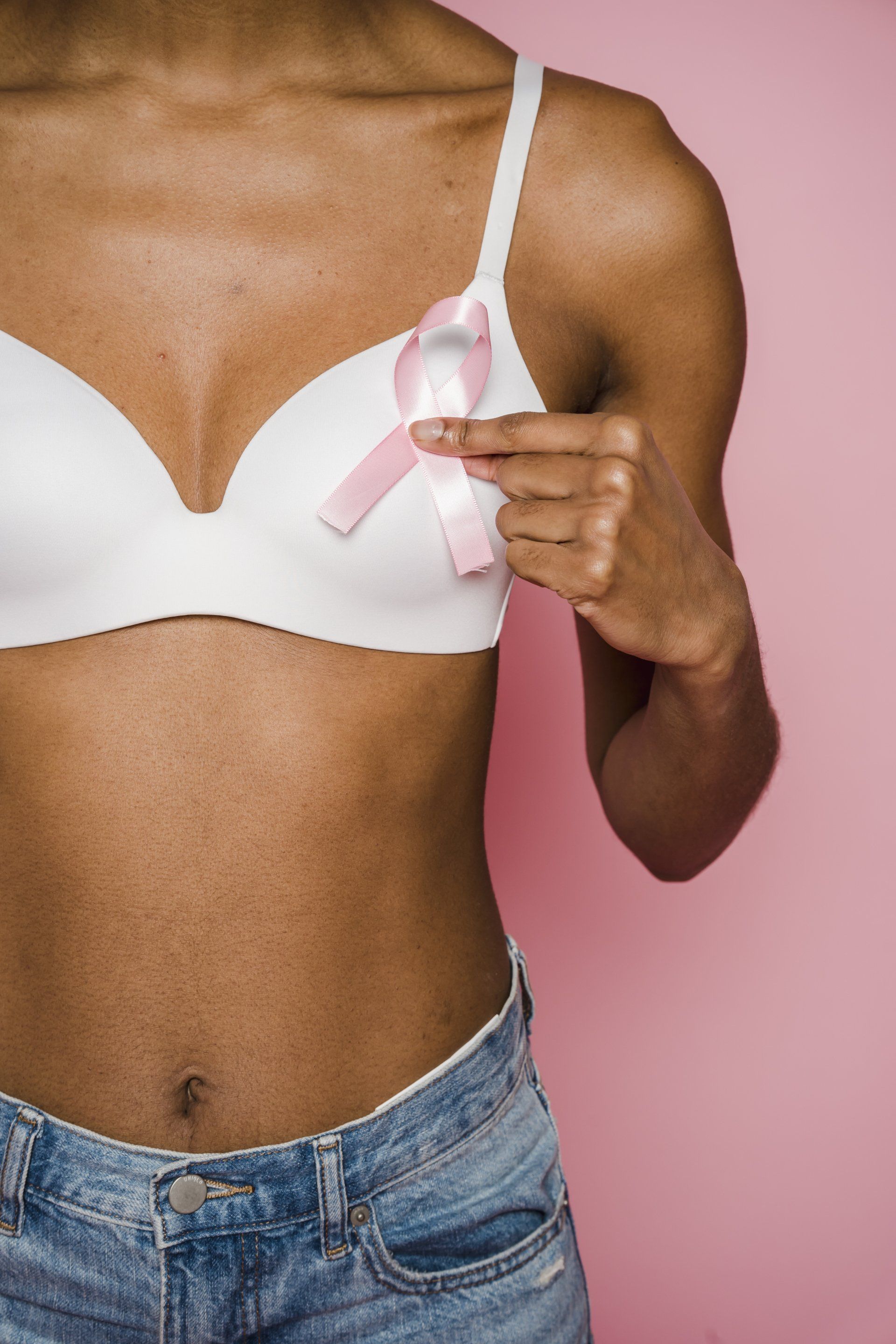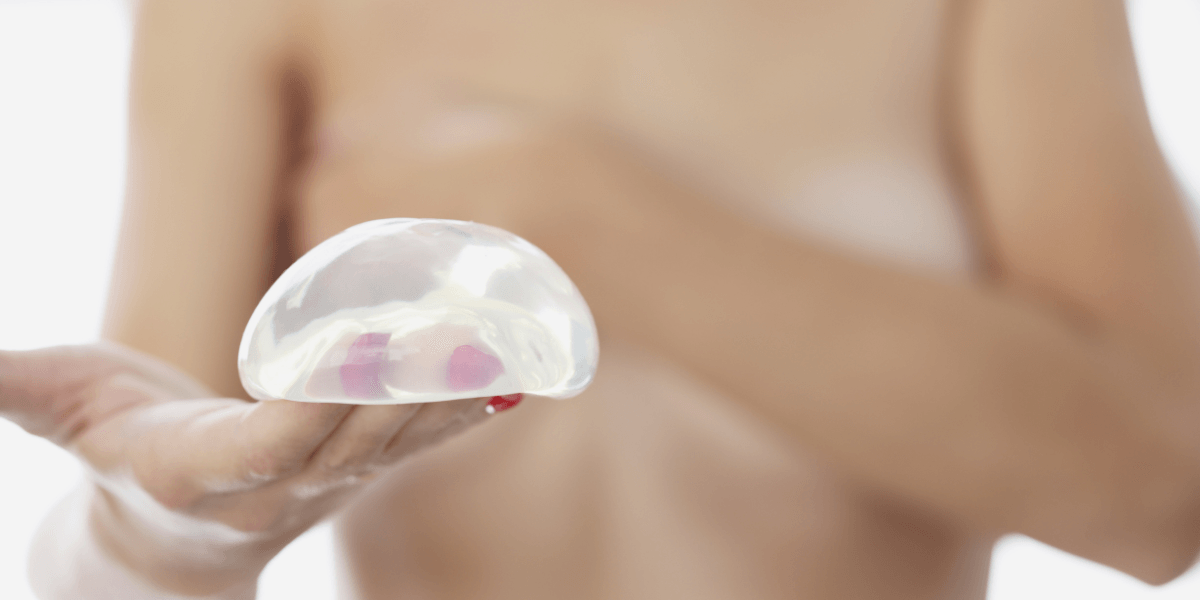Sex Life After Breast Cancer
For many women, breast cancer is more than just a physical illness. It’s a life-altering experience that can have far-reaching effects on one’s mental and emotional well-being, as well as their sex life.
This is why it’s so important for those who are going through cancer treatment to understand the potential impact it can have on their sexual function and how to manage any changes that come with it.
In this blog post, we'll explore how breast cancer survivors can navigate the different types of emotions they may have regarding their sexual selves after breast cancer, as well as offer tips on how to reconnect with your body and create a safe space for yourself when exploring your sexuality post-treatment.
RELATED: Stay in the Mood During Chemo: Tips for Low Libido
The Impact of Breast Cancer Treatment on Sexual Functioning | Common Sexual Problems and Solutions
The Physical Impact
Most women with breast cancer experience some level of physical side effects. These can range from pain or discomfort in the affected breast to sexual dysfunction and changes in body image. Hair loss, weight changes, loss of breast/s, and scars can all have an impact on a woman’s self-esteem. These physical effects can make it difficult or even unpleasant to engage in sexual activities or explore women's sexuality.
Additionally, certain treatments — such as chemotherapy, radiation therapy, and hormonal manipulation — can cause vaginal dryness, making sex painful. It can also be difficult to expect the same sexual arousal or orgasm as before due to changes in sexual activity and physical recovery.
It’s important to note that these side effects don’t always last forever; they may fade away after treatment has ended. It's also important to note that there are ways to help mitigate the physical side effects of treatment.
For example, using vaginal lubrication during intercourse can help reduce pain caused by vaginal dryness. In addition, talking openly and honestly with your partner about any anxieties or worries you may be having can help both of you better understand what each other is going through.
The Psychological Impact
For many people, the emotional impact of breast cancer treatment is just as significant as the physical impact. The fear of recurrence or death, changes in self-image and identity, and worries about body image can wreak havoc on a person’s mental and emotional well-being. This can lead to feelings of guilt, depression, anxiety, or even lack of sexual interest.
It's completely normal to feel anxious, scared, or even angry when it comes to your sexual attractiveness after breast cancer. These feelings are valid and should be acknowledged.
The best way to manage these emotions is to talk about them and get support from those around you. This can help you better comprehend your feelings and identify strategies to help manage them.
Furthermore, addressing these topics with a mental health professional can make a big difference in helping to cope with any emotional distress caused by cancer treatments and feeling more confident in romance. Removing mental blocks associated with self-perception and body image is a common issue faced by breast cancer patients and survivors, and professional support or sex therapy can help navigate these topics and provide strategies to ensure mental resilience.
Painful Intercourse
Sadly, some cancer survivors may experience painful intercourse, which is caused by a number of factors, such as physical side effects like vaginal dryness or scar tissue, or emotional issues such as fear or anxiety.
If this is an issue you’re struggling with, it’s important to talk to your treatment team about possible solutions. Your health care providers may prescribe medication that can help reduce pain during intercourse, or recommend certain exercises that can help strengthen the muscles of the pelvic floor, alleviate discomfort, and increase blood flow to the area.
Additionally, engaging in relaxation techniques — such as guided meditation — can help you feel more connected to your body and promote feelings of comfort when exploring your sexuality after treatment.
Lack of Sexual Interest
A common problem many survivors face is lack of desire or libido. Some breast cancer treatments can lead to menopausal symptoms or even early menopause, which can further reduce sex drive.
It's important to remember that sex doesn't have to always involve intercourse; instead, it can also involve building physical intimacy with your partner like cuddling and massage.
Talk openly with your partner about what you're feeling and come up with ways together to help reconnect on an emotional level — this could lead to the physical side taking care of itself!
Be sure to consult with your doctor if you have any questions or concerns. With an appropriate course of action, regaining sexual desire after breast cancer is definitely achievable!
Other Ways to Maintain an Intimate, Enjoyable Sexual Relationship after Breast Cancer
Whether you're dealing with body image issues or changes in physical sensation and response, it's important to understand that sexual intercourse doesn't have to be a thing of the past.
Here are some tips to help maintain a healthy and enjoyable sex after breast cancer treatment:
- Take Things Slow
When it comes to sex after breast cancer surgery, it’s important to take things slow. Even if you're feeling eager and ready to go, try not to overdo it too quickly.
Depending on what type of surgery you had, taking it slow can help reduce any pain or discomfort that may occur during intercourse. Furthermore, remember that there'll likely be changes in sensation as well as physical response; give yourself time to adjust if necessary.
It’s important to remember that your body has been through a lot — don't expect the same level of performance as before, and give yourself time to adjust and heal after treatment. After all, recovery is a process, and it can take time to get back into the swing of things.
- Take Care of Yourself
Breast cancer self-care is essential in helping maintain a healthy and enjoyable sex life post-breast cancer surgery. This includes eating nutritious meals, drinking enough water, getting plenty of restful sleep, and taking time out to relax and unwind. These activities can help boost your mood and energy levels, making it easier to reconnect on an intimate level with your partner.
You may also want to try to connect with yourself in new ways. Take a yoga or meditation class, try out new hobbies or physical activities, or even just take long walks outdoors — all of these can help you focus on yourself and your own well-being.
In addition, practice self-compassion. Understand that it’s normal to feel overwhelmed, scared, or frustrated — then practice kindness towards yourself. Acknowledge the feelings and be gentle with yourself as you go through them.
- Have a Sexual Fantasy
Sometimes, it can be difficult to feel aroused after a diagnosis of breast cancer — but engaging in sexual fantasies can help you get back in touch with your sexual desires and feelings.
Fantasies don't have to involve intercourse; they can be about finding new ways to share intimacy and pleasure with your partner. You could try role-playing scenarios or even just talking about what turns each other on.
Try to imagine yourself in a pleasurable situation, or think about what would make you feel sexy. This can help reignite the fires of passion and excitement — and even if it doesn't lead to anything physical, just engaging in a fantasy can be an enjoyable experience as well.
Exploring your fantasies can help you feel more comfortable and relaxed about the idea of sex after breast cancer, as well as make it easier to discuss what's desired and not desired in the bedroom.
- Do Pelvic Floor Exercises
Pelvic floor muscle exercises are great for helping with issues such as vaginal dryness and discomfort during intercourse. Stronger pelvic muscles can also increase sensation in the area, leading to more enjoyable sex.
These simple exercises involve squeezing and holding your pelvic muscles for a few seconds at a time — try this several times each day to help build up strength.
Check out some of the different types of exercises you can do, and make sure to speak with your doctor if you're unsure how best to exercise safely.
RELATED: How To Take Care Of Your Breast Prostheses
- Try Vaginal Lubricants
Vaginal lubricants and moisturizers can help reduce uncomfortable friction during sex. These are especially helpful if you're dealing with dryness or irritation due to menopausal symptoms.
Lubricants come in a variety of forms, such as water-based, oil-based, and silicone. Be sure to ask your doctor what's best for your particular situation.
Water-based gel lubricants are generally considered the safest option as they won't interfere with latex condoms, diaphragms, or cervical caps. Just make sure that they have no perfumes, preservatives, or hormones to avoid aggravating any soreness.
Meanwhile, oil-based lubricants, skin lotions, and petroleum jelly aren't ideal for use with latex condoms, so be sure to double-check the ingredients and packaging for compatibility. These may also increase the risk of yeast infections in women who are prone to them.
- Explore Different Positions or Techniques
Experimenting with different positions and techniques can help make sex more enjoyable. When it comes to intercourse, try out different angles or positions to find one that's most comfortable for you.
For instance, you may find that lying on your side or using a pillow to prop up your hips helps keep pressure off of any tender spots. Additionally, shallow penetration with the penis or a dildo can be less uncomfortable, as this doesn't press too hard on the abdominal area — missionary position works well here. On the other hand, deep thrusting can be painful due to tightness in the pelvic floor muscles.
Talking through these options with your partner can help create a deeper connection between the two of you which could lead to a more satisfying sexual experience for both parties involved.
If you’re still dealing with pain during intercourse even after trying these tips, consider consulting with a physical therapist who specializes in pelvic health issues — they'll be able to provide specific advice tailored to your situation.
- Touch Your Body Intimately
It's not uncommon for survivors to feel disconnected from their body after breast cancer treatment. To help reconnect with your body, try spending time exploring it intimately; this could include touching or massaging different parts of the body, and taking some time to remind yourself of its beauty and strength.
You may also want to rediscover pleasure points. Breast cancer treatment can disrupt your normal sexual arousal, so it may be helpful to explore other ways of finding pleasure. This could include exploring different touch sensations or trying out a new sex toy.
Remember, when touching your body intimately, you're taking back control of how you see yourself and appreciating what makes you unique. Take time each day to explore and celebrate new sensations with no added pressure.
- Dress in Your Comfort Zone
It's important to note that sex after breast cancer doesn't have to be all about physical touch — it can also involve feeling comfortable and sexy in your own skin.
Your body may have changed after breast cancer treatment, and it can be daunting to find clothes that fit or make you feel attractive. However, dressing in garments that make you feel comfortable and confident is a great way to start reclaiming your body image.
Whatever type of garment you wear — whether it's lingerie or loungewear — should make you feel comfortable and sexy. Looking good doesn't always mean having to follow the latest trends; what matters most is finding something that appeals to you personally.
- Create a Relaxed Atmosphere
One of the best ways to ease back into sexual activities is to create an atmosphere where both partners feel relaxed and taken care of. Consider things like a cozy blanket, dimming lights, calming music, or essential oils.
Also, try to keep communication open between you and your partner about any worries or concerns either of you have about sexual satisfaction post-treatment. Invite conversation and trust, so that sexual pleasure can be rediscovered without fear or shame. What may have worked in the past might not always work now, so consider having the conversation about new loving activities that are fun for both parties.
Communicate openly, practice patience and kindness, and open yourself up to explore sexual pleasure in a new way — talking it out can help alleviate fear and strengthen relationships.
- Join a Support Group
Coping with intimate changes that come with breast cancer can be a challenge especially for young women, and talking to breast cancer patients and survivors who've been through it can be incredibly helpful. Studies show that younger women have more problems adjusting to post-cancer body changes, and that support groups can be especially beneficial.
Joining a support group is a great way to connect with like-minded people, receive advice on how to manage the emotional aspects of post-treatment survivorship, and most importantly, form solid friendships. Having a community who understands your experience can lead to more positive conversations about sex life post-treatment. Support groups are often filled with women offering one another encouragement and experiences, which can help to renew feelings of self-worth and confidence in sexual intimacy.
- Reach Out for Professional Support
Counselling or talking to a sex therapist may also be beneficial in helping manage the emotional, psychological, and physical changes that occur after breast cancer surgery. These sessions can help you and your partner to better connect on an emotional level, as well as address any concerns or anxieties that may be affecting your sexual health.
- Schedule Regular Check-Ups with Your Doctor
Don't forget to schedule regular check-ups with your doctor, as they'll be able to provide you with any updates on hormone levels or medications that could help improve sexual function.
It's also important to let them know how you're feeling emotionally and physically — this can help you get the best possible care for your individual needs.
- Reconnect with Your Partner
Finally, taking time for yourself doesn't have to mean disconnecting from your partner — quite the opposite! Reconnecting with your significant other on an intimate level is one of the best ways to heal post-surgery.
In addition to sex, there are a variety of other ways to connect with your partner and keep the spark alive.
Spend quality time together in activities like long talks, cooking meals, going for walks, or engaging in hobbies that you both find enjoyable. You can also work on strengthening your emotional bond through acts of kindness such as writing love letters, offering compliments, or surprising each other with gifts! And if you need a little help with ideas, we have a wide selection of products available here on our website to help you reconnect with your partner!
Remember that even though it may be a difficult transition, doing things that don't involve physical touch will help maintain an intimate relationship and make it easier to reconnect when it comes time for sexual activity.
Final Thoughts
Navigating your sex life after a breast cancer treatment doesn’t have to be an insurmountable challenge — in fact, it could even be a positive experience for you and your partner if you take the time to understand how it might affect your relationship moving forward.
It's important to remember that there's no right or wrong way to approach sexual pleasure. Everyone should take the time needed for healing and understanding their body post-treatment — this is a journey that you don't have to take alone.
Find what works for you in terms of sexual intimacy, whether it be through communication, support groups, professional advice, or simply quality time with your partner. With patience and understanding, you'll be taking steps towards reclaiming your sex life (and quality of life) post-breast cancer diagnosis and treatment!
Up Next:










